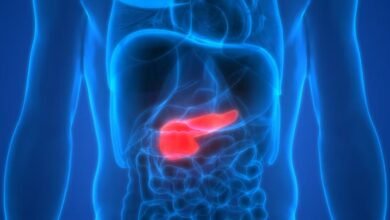Common Fistula Symptoms & Signs

Do you know Common Fistula Symptoms & Signs? Dealing with anal fistulas is the biggest pain in the butt. Without appropriate anal fistula treatment, you can anticipate a worsening of the condition. How do you make that happen? from knowing the symptoms and indicators of a fistula. Once you have a clearer understanding, you may take steps to seek the appropriate assistance and start the healing process. Check out this page to learn everything you need to know.
What Are Anal Fistulas?

An anal fistula is a tiny passageway that forms between the anus’ skin and the end of the bowel. What causes an anal fistula to form? It usually happens as a result of infection close to the anus. It leads to an accumulation of pus (abscess) in the adjacent tissue. Typically, when pus drains away, it can leave a tiny channel behind. These fistulas can be uncomfortable and present with a number of symptoms including swelling, redness, and discharge. It’s crucial to get medical assistance as soon as you think you might have an anal fistula so that you can be properly diagnosed and treated. You don’t want to wait too long if you have a condition in order to protect your health and daily convenience.
Read More:To Meet Your Goals Six Solid Reasons Sign Gym Club
Understanding Common Signs of Fistulas
There are a few crucial indicators of anal fistulas that you ought to be aware of. The presence of a painful bump or swelling close to the anus is one typical indicator of an anal fistula. When sitting, standing, or moving, this bump may be sensitive to the touch and may cause discomfort or agony. Naturally, this bump will also be present when you use the restroom. Some sufferers of anal fistulas may furthermore endure edema in the thighs, lower back, and buttocks.
Discharge is another sign of an anal fistula that is frequently present. As was previously said, this discharge is an abscess, and it may seem pus-like and smell bad. There might also be blood or other fluids present.
Anal fistula sufferers may also have other symptoms like fever, chills, and abdominal pain in addition to swelling and drainage. They might also feel worn out and have trouble going to the bathroom. Anal fistula sufferers may also feel pain or discomfort while engaging in sexual activity.
What Are the Risks of Untreated Fistulas?
An anal fistula can become more likely to form if a number of risk factors exist. Among these are inflammatory bowel conditions (such as Crohn’s disease or ulcerative colitis), an anal abscess, or prior surgery in the region. Anal fistulas may also be more likely to form in people with compromised immune systems, such as those with HIV or AIDS.
As the symptoms of other illnesses, including abscesses or hemorrhoids, may be similar to those of an anal fistula, diagnosing one can be challenging. To help identify the underlying source of the symptoms, a physical examination and medical history are undertaken. Rectal examination, CT scan, and MRI are examples of other diagnostic tests that might be carried out.
Surgery is typically required to drain an anal fistula and remove any contaminated tissue. There are a few variables that will determine the precise surgery. These include the patient’s general health as well as the location and size of the fistula. A straightforward fistulotomy, in which the fistula is cut open and drained, may be carried out in some circumstances. In more difficult cases, a fistulectomy—a more involved procedure where the fistula and a small piece of surrounding tissue are removed—might be required.
To ensure good healing following surgery, strictly follow your healthcare provider’s instructions. This could entail taking prescribed medication, keeping the area dry and clean, and staying away from physically demanding activities. Anal fistulas can cause pain and discomfort, but with the right diagnosis and care, you can effectively manage them. It’s crucial to get medical help as soon as you notice any of the aforementioned symptoms in order to identify the source and obtain the best care.







